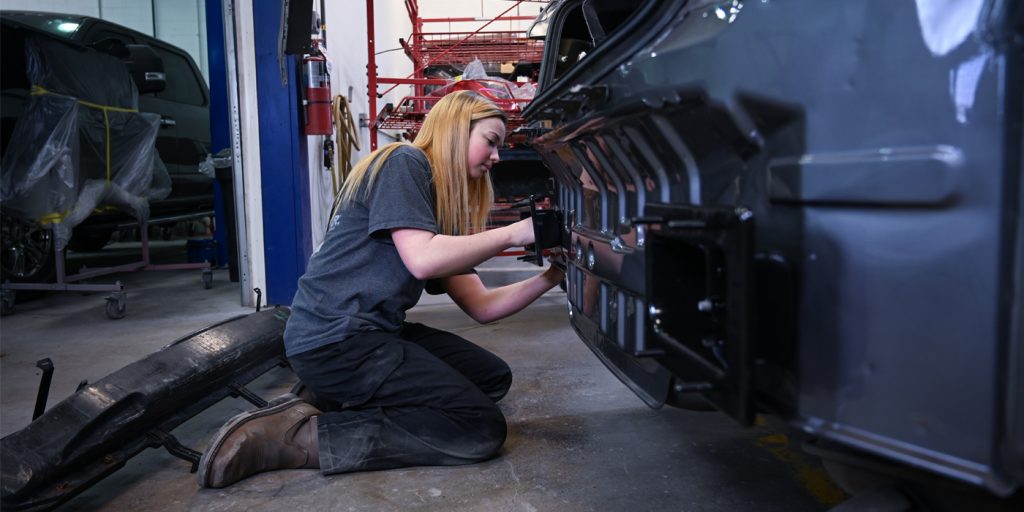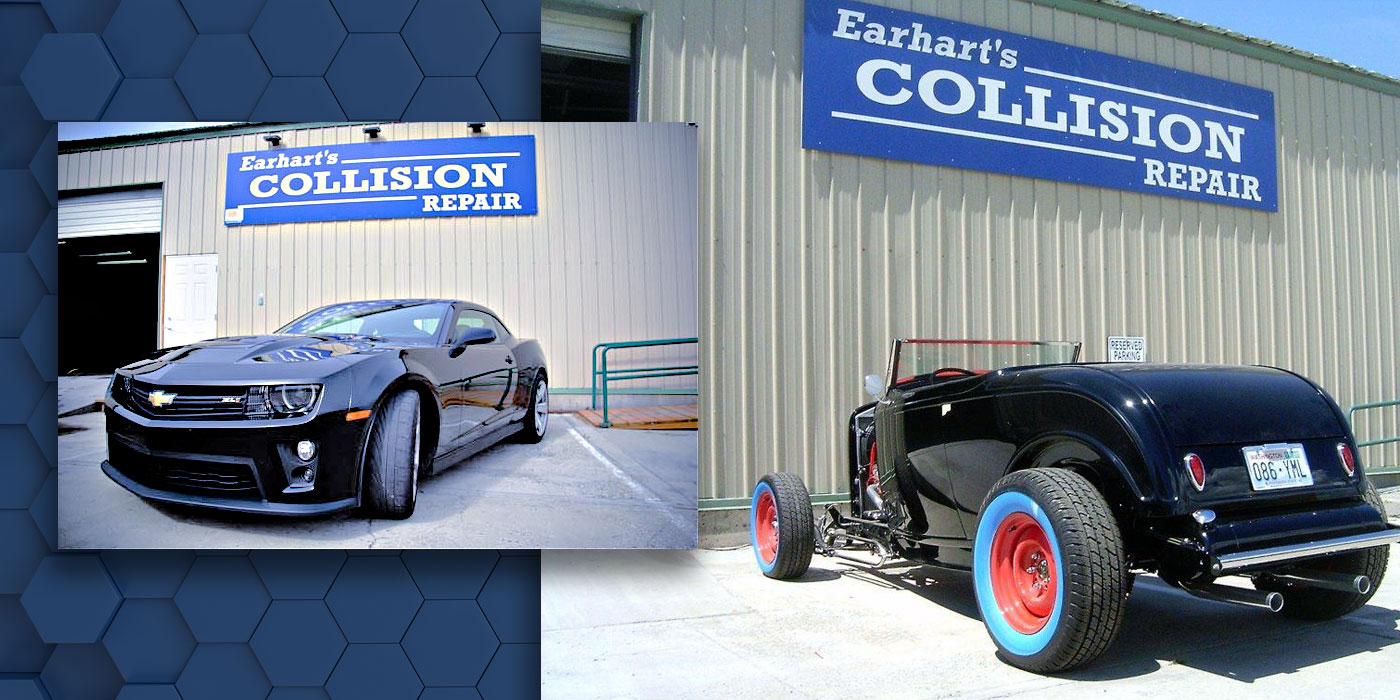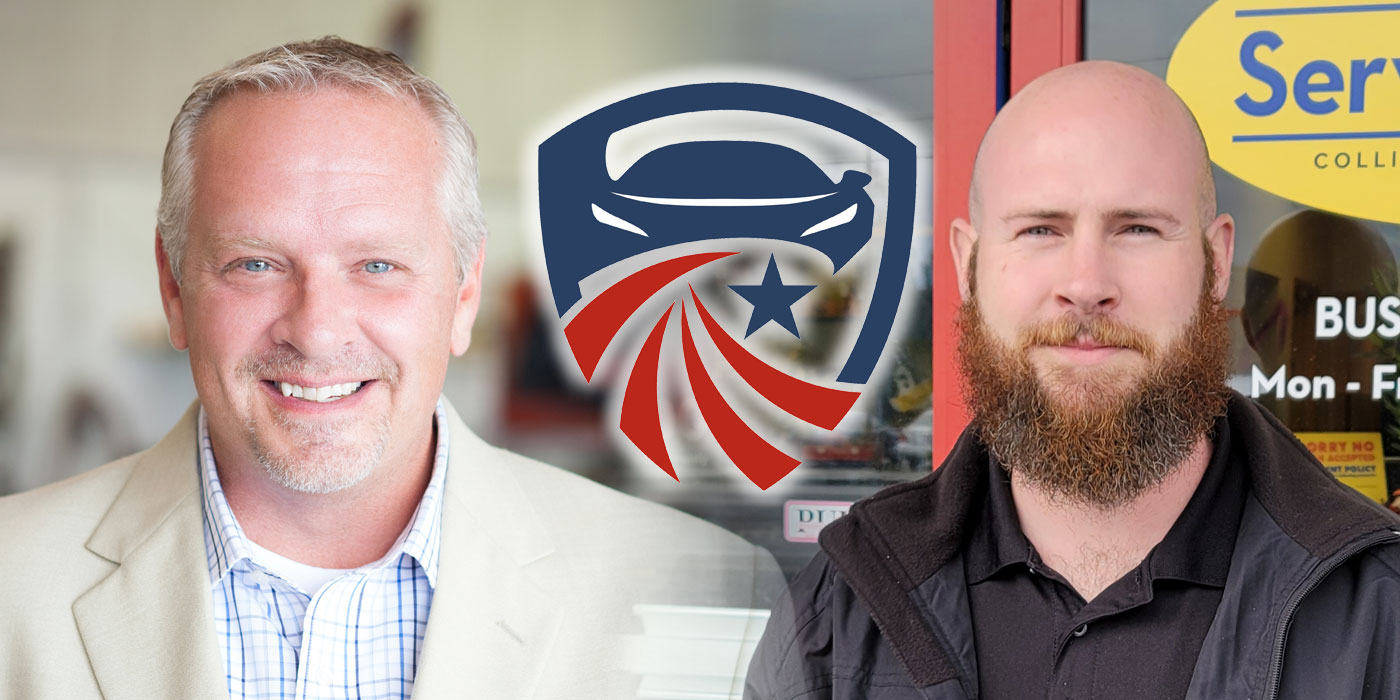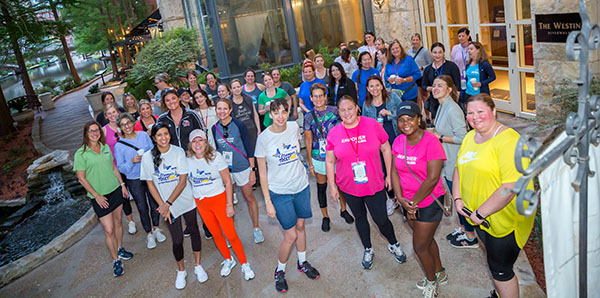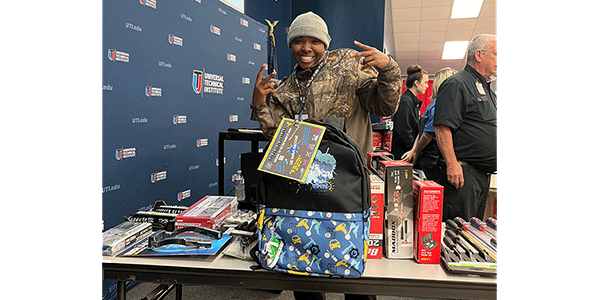Like a lot of industries, the collision repair industry is facing many challenges today. Perhaps one of the most glaring and widely known is the technician shortage. Collision repair facilities are feeling the weight of this more and more as their current workforce ages. According to the 2019 BodyShop Business Industry Profile, the average age of body shop production personnel today is 42.7. Who will replace them when they’re gone?
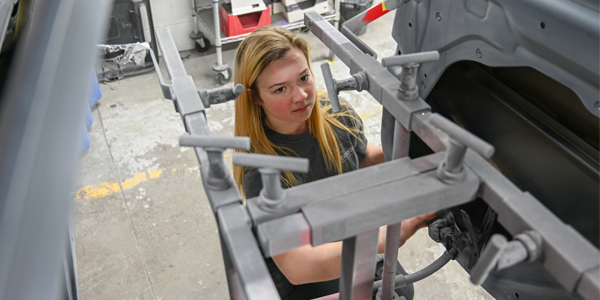
This worker shortage is widely known because the media has shined a spotlight for some time on the declining lack of interest in blue-collar trade jobs: plumbers, electricians, welders, collision techs, etc. Celebrity Mike Rowe, former host of the Discovery Channel’s “Dirty Jobs” TV show, became the face of “America declaring war on work,” spotlighting the skills gap and creating the Mike Rowe Works Foundation, offering scholarships to help fund schooling for those interested in the trades. Despite this attention, the problem still exists. Ask the plumbing company owner in New York who has 10 openings paying a $90,000 salary apiece who can’t fill the jobs. And it’s a problem that has existed for a long time. In fact, finding good techs has been ranked a top problem by repairers in the pages of BodyShop Business since the first issue was published in 1982.
Body shop owners o ften say, “I don’t have a problem finding help, I have a problem finding qualified, experienced help.” Perhaps this pursuit of “experience” is why shop owners shy away from new tech school graduates – and why a vo-tech instructor reached out to BodyShop Business recently to ask, “When will the industry that says they are in need of entry-level technicians start actually hiring the technicians my program is producing?”
The Why
There are various theories why the skills gap is wider than it has ever been. As Rowe said himself, over the last 30 years, America has convinced itself that the best path for the most people is an expensive, four-year degree. Others feel parents are discouraging their children from these trade occupations. Some say kids today desire office jobs over manual labor, or view such occupations as hazardous to their health. There are o ften negative stereotypes associated with these jobs as well. As a result, student loan debt has skyrocketed and vocational education has dwindled.
By the Numbers
In 2016, I-CAR estimated that at least 56,000 body shop jobs were un filled at the nation’s 34,000 collision repair facilities. On the automotive service side, according to the U.S. Bureau of Labor Statistics, by 2026, the automotive repair industry will need 46,000 more service technicians to meet demand. Currently, the retirement of the last generation of service technicians has left vacancies of 75,000 job openings in any given year.
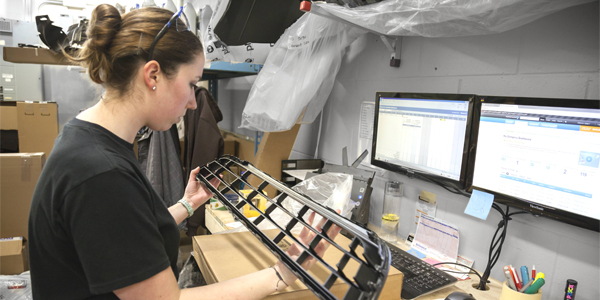
According to the TechForce Foundation, despite an annual average demand of over 120,000 technicians, their report found that completions of post-secondary technical programs were more or less level across the industry, and the number of completions of collision-speci fic training programs decreased year over year from 2012 to 2016. As far as demand versus supply, in 2016, TechForce Foundation predicted the market would need over 20,000 collision techs but that there would be only 5,000 post-secondary graduates to fill those jobs.
“Our country and education system have divested in high school auto shops
and stigmatized trade school education, which is killing the trades,” said Jennifer Maher, CEO/executive director of TechForce. “A big part of the problem is the outdated image of the ‘grease monkey’ mechanic that students and their parents, teachers and counselors may have. Today’s techs are well-paid, highly skilled, hands-on problem solvers who are not burdened by massive school debt like their four-year school counterparts. As we change this image, we can get more students interested in becoming technicians.”
Industry-First Survey
The Women’s Industry Network (WIN), a not-for-profit organization founded in 2006 that is driving the future of collision repair by attracting, developing and advancing women, recently partnered with BodyShop Business on an exclusive, first-of-its-kind survey to try to get to the root of young people’s feelings about a career in collision.
WIN and BodyShop Business were interested in identifying some of the important factors people consider when deciding on a career, especially careers in the collision industry. We surveyed both the general 18- to 24-year-old population, students who are enrolled in or recently finished classes that either train them for the collision industry or for a standard auto technician position, and those who recently started working in the collision industry.

One interesting trend in the study was the pronounced difference between the general population (gens) and the techs when responding to the sentence, “I like to work with my hands.” On a scale of 1 to 5, with 1 being “strongly disagree” and 5 being “strongly agree,” male techs scored a 4.63 versus the male gens (3.85) and female techs scored 4.29 compared to the female gens (3.88).
There was also a pronounced di fference between the gens and techs in the response to, “I like to fix things,” 4.60 to 3.85 in males and 4.27 to 3.42 in females.
As we know, the socio-economic background of the respondents may also play a factor in career choice. If one’s parents are in white-collar careers, there may be resistance to seeing children aim for a career in the auto care skilled trades. Our study found that those who end up in the auto care technical programs tend to go to high schools that have vocational/trade programs, and not as many of their classmates went on to college.
We also asked 18- to 24-year-olds in the general population and those in collision schools or trades what were important factors in their career choices. And surprisingly, in a generation where money is not supposed to matter as much as it did to previous generations, high salary was the second highest ranking factor among techs, with 73% saying that in fluenced their career choice. Compare that to only 64% of gens who said high salary was important (although it was the highest-ranking factor for them, too). Good bene fits ranked even higher among techs at 80%. Other factors included: job security (77%), clean and safe workplace (61%), job status (40%), feeling valued in my work (71%) and making a living wage (66%).
To see these stats in graphic form, click here.
Three Goals
WIN said it has three main goals: attract women to the collision industry, develop them and advance them in the industry. The beauty of collision, said Cheryl Boswell, chair of the WIN Board of Directors, is that the opportunities are limitless.
“In our industry, if you want to be in HR, sales, estimating, ownership, it’s all here,” says Boswell. “And honestly, the ability to change positions and learn new skills is probably greater in this industry than most others. So it’s one of these industries where it’s almost a shame, it’s a hidden gem. There are even opportunities in collision on the IT side – DCR Systems, for example, hiring someone to create an app for our company.”
Boswell also said that not only are there a variety of jobs available in collision, it’s relatively easy to transition from one to another compared to other industries.
“In our industry, we see people growing, expanding and changing. And we’ve even had people who have taken a step back as they’ve gotten older and said, ‘Now I want something with a little bit less responsibility, but I still love this industry.’ I mean, in how many industries can you do that?”
So far, WIN has not been utilized nearly as much as it should be by collision repair facilities in need of techs. With their vast network of members, if a shop reached out to WIN for help, WIN could find who they’re looking for.
“We would share this with our network and say, ‘This shop has these opportunities,’” Boswell said. “There’s no better way to spread the word than through your network and connections. Those are the types of stories we want to share, and we would start reaching out and looking for those candidates because we all know skilled people who would be perfect for different positions.
“We want to be the network that everyone thinks about when they’re going about their day and ask themselves, ‘How do I hire a woman?’ Or, ‘How do I support this young individual I’ve just hired into this industry?’ Because we all know we’re in a crisis in terms of, how do we get people into this industry and how do we keep them in the industry?”
Jenny Anderson, vice chair of the WIN Board, works for Entegral powered by Enterprise, a so ftware company – further proof of the vast array of opportunities for people of varying skill sets.
“There are people in WIN who work for paint companies, insurance companies. There are so many di fferent roles and responsibilities within all of these verticals that make up the collision space,” Anderson said. “And part of our job is to help young folks understand the opportunities because they really are limitless. I think that historically we kind of see those opportunities in this really small box, and that is de finitely not the case. The sky is the limit.”
Mentoring
Through the mentoring WIN does within its organization, they’re able to expose women to other women who have grown their careers tremendously and jumped from one interest to another while staying in the collision industry. How do they do that e ffectively? How do they build up their skills? What resources do they need? WIN can answer those questions.
“The landscape has changed,” Anderson said. “Our organization is evolving to help set these females up to come into our industry, be successful and have the resources they need to continue to grow their careers.”
One of the reasons cited for the collision tech shortage is the lack of e ffective, established training programs within shops. Or, pairing a young trainee with a person who is not “cut out” to be a mentor. Boswell believes it may be this lack of support, not a lack of interest, that turns o ff young techs.
“A number of times, we’ll have women that will say, ‘Hey, this industry is not for me.’ And it always goes back to, are they getting the support and training and do they have a mentor?” she said. “We believe that everyone needs a mentor. And it doesn’t have to be someone within your organization. So if someone is in a collision repair shop and they don’t have the support they need to really seek a mentor outside of the organization, it doesn’t mean they can’t stay in that organization. They just need a mentor. That’s one of the things that WIN prides itself on is that we’re an organization of mentors and we love to support each other.
“We’ve had people who attend our conference or meetings and they’ll say, ‘Hey, I was getting ready to head out the door and leave this industry. But you know, now that I feel support and I see that there are others who have had the same struggles and now I have someone to help guide me, I’m going to stay in this industry because there’s a ton of opportunity.’ So I think our advice is, find a mentor, whether it’s in your company or not.”
Gender Roles
Boswell, corporate chief financial o fficer and managing partner of DCR Systems, which outsources turnkey accident repair centers for car dealers, said the female employees at her company have made signi ficant contributions to the organization, but it’s not necessarily gender-related.
“Whether they’re male or female, I think the important thing is that when they enter a company or industry, they have the right support. That’s really what’s critical to retain people,” Boswell said. “We do have some women who work for us and they’re amazing. They’re detail-oriented, they’re hardworking, but I think the most important factors whether they’re male or female are that those people who are entering your company or the industry have a desire to learn. If they’re open-minded and you’ve got the right resources to train them, then those individuals will be successful.
“In our particular organization, we have a strong training program, and whether the trainee is male or female, we make sure they’re mentored and we teach them the skills that we want them to have. And we work in a team environment. So, it’s critical that everyone works well together, regardless of their gender.”
When asked if she thinks women in particular are better suited for a certain role in the collision environment, Boswell said she didn’t think so.
“I think it’s across the board. I think it’s important for people in general to think about what they want to do with their lives and what their skills are. I do think people have kind of been pigeonholed into certain roles in our industry because of their gender. And I think it’s time to change. It doesn’t matter if you’re male or female, you can do any of the roles in the collision repair industry. People just need to decide, hey, what do I really want to do? What are my skills? And then find the organization that’s going to support them in that role.”
WIN has direct access to collision students via the relationships it has formed in the industry.
“We have a scholarship committee that has formed some strong relationships with vo-tech schools around the country,” Boswell said. “They work actively with teachers and the people who run the programs, encouraging them to look for individuals who would be good potential scholarship applicants. And we promote the scholarship program on our social media sites, our website and in our press releases.”
Summary
Hopefully this article has given you some insight into WIN amd the mindset of young people looking for careers, and also given you a game plan on some potential strategies to attract, hire and retain young recruits.
For more information on WIN, visit womensindustrynetwork.com.

